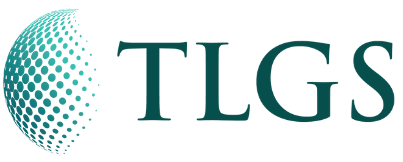Introduction
In a commendable move to enhance accessibility to vital medical treatments, the Goods and Services Tax (GST) Council, in its 50th meeting, announced significant exemptions on Integrated Goods and Services Tax (IGST) for specific medical imports. The decision, spearheaded by Union Finance and Corporate Affairs Minister Smt. Nirmala Sitharaman, aims to support institutions providing healthcare services for rare diseases and facilitate the availability of crucial medicines.
Exemptions and Recommendations
The 50th GST Council [1]meeting recommended exemptions for cancer-related drugs, medicines for rare diseases, and food products designed for special medical purposes from GST. Notably, the Council decided to exempt IGST from Dinutuximab (Quarziba), a cancer medicine, when imported for personal use. Additionally, exemptions were extended to medicines and Food for Special Medical Purposes (FSMP) used in the treatment of rare diseases listed under the National Policy for Rare Diseases, 2021[2], when imported for personal use, subject to existing conditions.
Furthermore, the Council proposed extending the IGST exemption to FSMP imports by Centres of Excellence for Rare Diseases, as well as any person or institution recommended by these listed Centres of Excellence. This comprehensive approach demonstrates the government’s commitment to addressing the challenges faced by patients in accessing expensive and rare medicines.
Background and Justification
The decision to exempt Dinutuximab (Qarziba), a rare cancer drug, and medicines/FSMP for rare diseases from IGST aligns with the recommendations of a committee of tax officers known as the Fitment Committee. This committee emphasized the need for exemptions, acknowledging the high cost of certain medicines, such as Dinutuximab, which could reach Rs 36 lakh. Importantly, patients often resort to crowdfunding to afford these medications, highlighting the urgency of such exemptions.
Industry Perspectives
Industry experts have lauded the government’s initiative but stressed the importance of extending Customs and GST waiver benefits to all life-saving medicines, including cancer drugs. V Simpson Emmanuel, MD and CEO of Roche Pharma India, and Co-Chair of the Rare Disease Committee at the Organisation of Pharmaceutical Producers of India (OPPI), emphasized the significance of considering the interests of patients in the introduction of innovative treatment options.
Challenges and Future Considerations
While the exemptions represent a positive step, challenges remain. Currently, patients treated with locally available and approved products are excluded from Customs duty and GST waivers. The OPPI urges the government to extend these exemptions not only to patients but also to medical institutions and importers, including private entities.
Parliamentary Recommendations
In response to the high cost of cancer treatment in the country, a parliamentary panel urged the government to waive GST on cancer drugs. The panel also recommended comprehensive pricing regulations and designated cancer as a “notifiable disease” for better monitoring and support to affected individuals.
Conclusion
The recent decisions by the GST Council reflect a commitment to improving access to critical medical treatments, especially for rare diseases. The exemptions on IGST for Dinutuximab and medicines/FSMP used in the treatment of rare diseases are steps in the right direction. However, industry experts and stakeholders emphasize the need for a broader application of these exemptions to include all life-saving medicines. The government’s initiatives, including the National Policy for Rare Diseases and financial support for patients, demonstrate a holistic approach to addressing healthcare challenges in the country.
